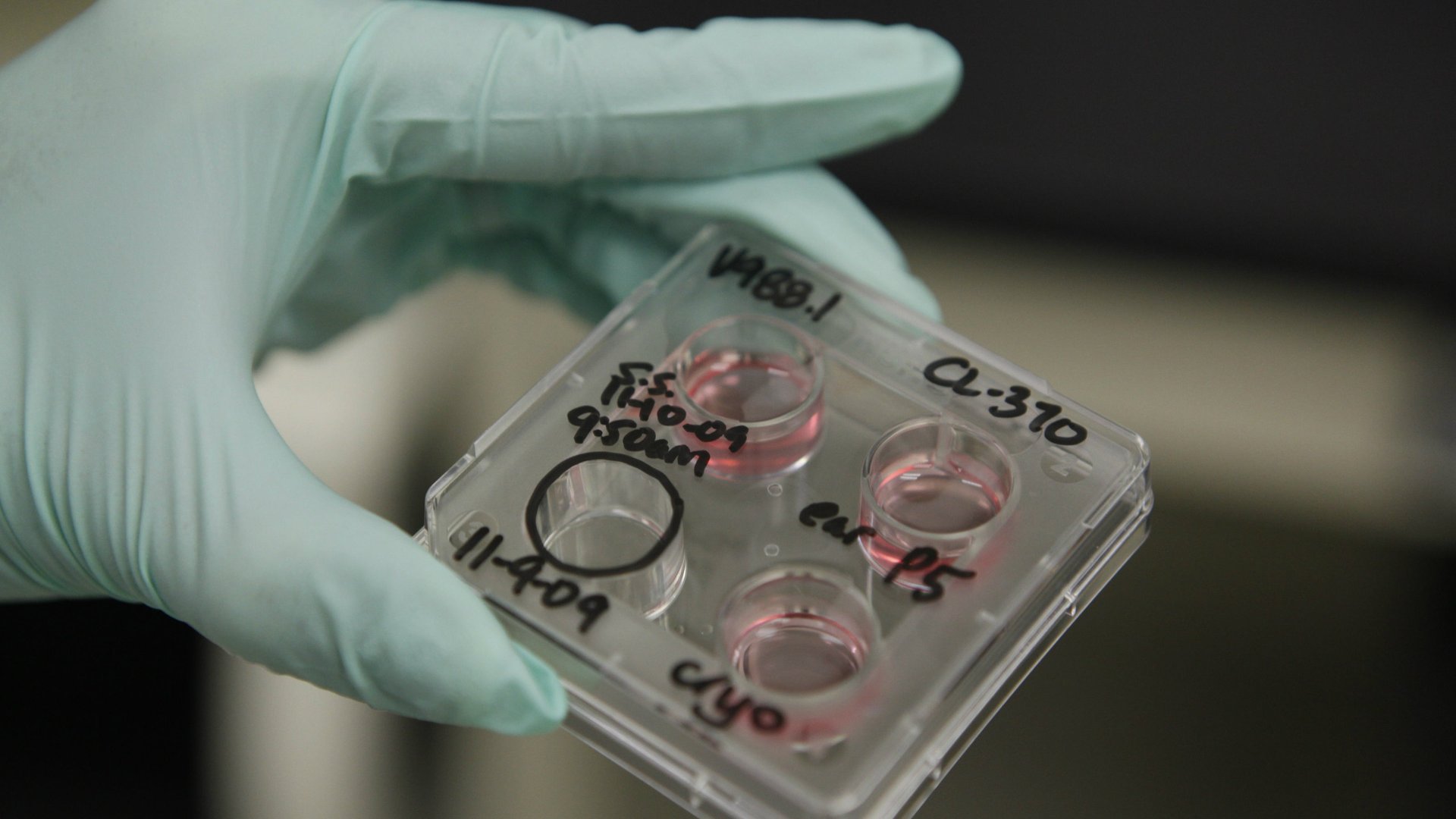US food regulators are fighting over who gets to oversee cell-cultured meat
There’s a turf war unfolding between two US federal agencies, both of which claim to have the authority to regulate high-tech, cell-cultured meat companies.


There’s a turf war unfolding between two US federal agencies, both of which claim to have the authority to regulate high-tech, cell-cultured meat companies.
On July 12, the US Food and Drug Administration (FDA) held a public meeting in Washington DC to discuss regulatory considerations for the nascent industry, which is readying meat products that don’t require slaughtering animals or running farms that pump massive amounts of greenhouse gas emissions into Earth’s warming atmosphere. The meeting occurred one month after the FDA proclaimed it had regulatory jurisdiction over the products, something the US Department of Agriculture (USDA) bristled at.
The six-hour meeting was a major coup for the startups behind such new meats—called “clean meat” by many in the industry—as founders for the first time shared a packed venue with meat industry groups, health advocates, animal welfare activists, and government officials hoping to shape the policies that determine how cell-cultured meats wind up getting to market. The session was also attended by the FDA’s busy commissioner, Scott Gottlieb.
A government turf war
Gottlieb’s presence represented more than just enthusiasm for a new food technology. In the last several weeks, the FDA has jostled with the USDA in what’s become a public spat. The FDA regulates some 80% of the food supply, including most fish, produce, and some specialty meats. The USDA regulates most meat products and catfish. By attending July 12 session, Gottlieb reasserted the FDA’s position that it should be the government agency to manage future oversight of clean meat.
Squabbling between the FDA and USDA has also caught the attention of the White House, which called a meeting between the two agencies on June 22. It’s unclear what happened at that meeting, but a letter obtained by Quartz, sent from the House Agriculture Committee to the White House’s Office of Management and Budget, suggests little was resolved. “Our expectation was that the White House meeting would direct USDA and FDA to coordinate on this issue,” it reads. “Moving forward, we would request that as the administration continues to evaluate these technologies, USDA and FDA be required to work together.”
Whatever was said on June 22, the FDA is showing no signs of backing down. In opening remarks at this week’s meeting, Susan Mayne, the director of the agency’s Center for Food Safety and Applied Nutrition, expressed confidence in the regulatory challenge ahead.
“This is not our first rodeo, so to speak, in this area,” Mayne said, adding that the FDA was already planning a fall meeting on cell-cultured meats with its science board.
Where’s the beef?
Among the leaders of cell-cultured-meat startups, the FDA meeting was broadly considered a success. That makes sense: Such companies collectively favor a regulatory regime in which the FDA takes the lead in setting policies and rules for food safety and future package-labeling. They fear regulation by the USDA would put them on an unfair playing field with established meat groups, some of whom despise the fact that the startups call their products “meat” at all.
But the meeting also exposed also just how little is known about cell-cultured meat products. While a few of the startup companies talk about how far the science has come—one claims it will have something ready for consumers by the end of the year—there is still a big elephant in room: No outside regulators or independent companies have seen this new, high-tech meat up close.
“Samples of cultured tissue have not been available for evaluation of the safety, composition, functionality, and sensory properties to understand how it compares to meat from conventional animal production,” said Rhonda Miller, a Texas A&M University professor who often works with the American Meat Science Association.
This is bound to be a recurring theme. As outside scientists, food-safety advocates, journalists, and government regulators clamor to understand how cell-cultured meat will be regulated, the industry will be called upon to improve transparency around methods of production, ingredients, and consumer safety. How amenable companies will be to sharing that information remains to be seen.
A Trump bone
While the FDA meeting was focused on questions of science and future policy, there is a chance that cell-cultured-meat oversight becomes a political chip for the White House. There are some agriculture policy insiders speculating that US president Donald Trump could use the issue to try to appease American farmers angry about his decision to wade into trade wars with China, the European Union, and Canada.
“Already bearing the brunt of global trade retaliation against American agriculture, US pork producers now face additional headwinds in the form of a regulatory land grab by the [FDA],” wrote the National Pork Producers Council in a statement. The group called upon the USDA to “assert its proper oversight” of cell-cultured meats and the use of gene editing in livestock production.
Eventually, the administration will have to make clear which agency is regulating cell-cultured meat. But until it does, the FDA seems highly motivated to keep a firm grip on the regulatory reins. Said Mayne: “We’re ready to face the challenge and to support the promise of this and other food technologies.”